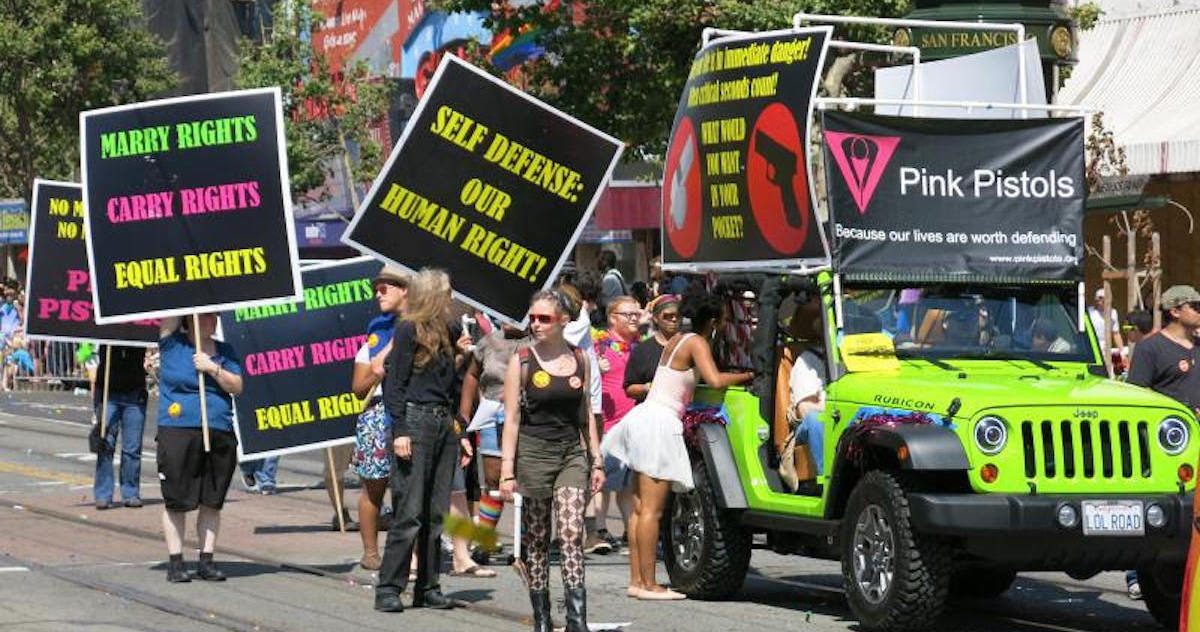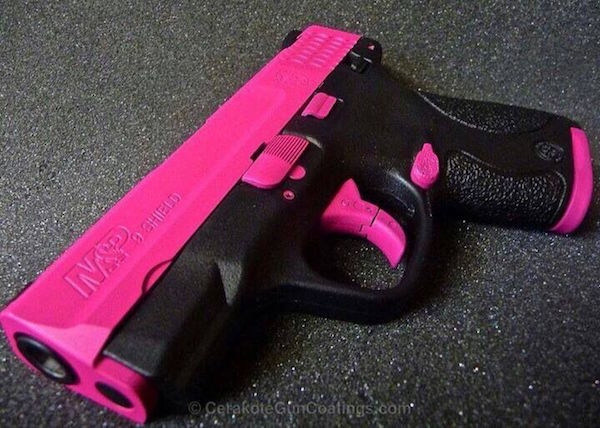
Going Against The Grain After Orlando Shooting, LGBT Groups Embrace Guns
More members of the LGBT community than ever are feeling the need to feel safe in their home.
After the June 12 terrorist attack where 49 people were killed at a gay nightclub in Orlando many member of the LGBT community report feeling a growing sense of uneasiness. With the increasing threat from anti-gay Muslim extremists and this deadly attack, there is plenty of justification for their concerns. Orlando was the deadliest mass shooting by a single shooter, the deadliest incident of violence against LGBT people in United States history, and the deadliest terrorist attack in the United States since the September 11 attacks in 2001.
While many LGBT groups are now calling out for greater gun control, there is a surge of members who think it is time to take their safety into their own hand.
From the LA Times
In the days after 49 people were fatally shot at the Pulse gay nightclub in Orlando, Fla., 38-year-old television editor Jonathan Fischer wanted to do something to make his community safer. So he started the West Hollywood chapter of the Pink Pistols — a loosely organized, national LGBT gun group.
“If someone was to try and break into my home, and especially if someone were armed, I don’t want to fight back with a kitchen knife,” Fischer said. “And I don’t think that’s extremist or crazy.”
It’s a stark contrast to how the overwhelming majority of LGBT activists and organizations responded to the Orlando massacre, which has sparked calls within the community for gun control.
In the wake of the shooting, some gay bars like the Abbey in West Hollywood beefed up security. The same day as the Orlando mass shooting, L.A.’s annual gay pride parade was rattled after a heavily armed man en route to the event was arrested.
For all the anxiety Orlando has caused, many gay activists say becoming armed is not the answer.
“Some people say you need a gun to protect yourself from the bad guys. We just fundamentally disagree with that,” said Rick Zbur, executive director of Equality California. “We don’t want to live in a world where you have to be packing heat to live your daily life.”
But for a small subset of the community, Orlando has become a call to arms.
When the firearms instructor at the range near Piru asked each person in the class why he or she was there, Fischer ticked off several reasons and mentioned the Pink Pistols.
“What is the Pink Pistols group?” a man asked.
There was a pause.
“We’re — a gay gun group,” Fischer said hesitantly. He tried quickly to explain.
“No, that’s awesome,” the man said, nodding reassuringly.
Interest in the Pink Pistols has increased since the Orlando attack, with new chapters springing up across the country, including the West Hollywood chapter and another one in North Hollywood. There was such an outpouring of support from firearms trainers, many of them straight, that the Pink Pistols’ website now has a map listing LGBT-friendly firearms instructors in every state.
The week of the attack, signs depicting a rainbow-colored Gadsden flag and the hashtag #ShootBack appeared in West Hollywood, where an estimated 46% of the population identifies as lesbian, gay, bisexual or transgender. City officials were outraged.
“Even during our heightened days of civil disobedience and protest, we have only advocated peaceful means, never arming ourselves and retaliating with violence,” said City Councilman John Duran, who is gay.
Gwendolyn Patton, the national spokeswoman for the Pink Pistols, has spent the summer trying to keep up with the all inquiries about the group and how to start new chapters.
“People don’t like to feel helpless,” said Patton, a lesbian who lives outside Philadelphia.
The Pink Pistols has received a mostly negative response from the broader LGBT community, she said. Some LGBT centers, she said, have even specifically banned the Pink Pistols from using their facilities.
The group dates to 2000 when gay author and journalist Jonathan Rauch wrote an article for Salon.com calling for gay people to “set up Pink Pistols task forces,” get licensed to carry guns and arm themselves to protect their community.”
“Not all that many gay people would need to carry guns, as long as gay-bashers couldn’t tell which ones did,” Rauch wrote.
Rauch told The Times he wrote the article at a time when the brutal murder of gay college student Matthew Shepard was still fresh in the public consciousness. It woke people up, he said, to what gay people had known all along: “that we were targets of day-to-day terrorism.”
“There is a huge amount of anti-gay stereotype in America that has to do with weakness — people calling us limp-wristed and fairies,” Rauch said. “Over the years, many gay people came to internalize this stereotype and assume that we are weak and defenseless, and of course we are not.”
The first Pink Pistols chapter, taking its name directly from Rauch’s article, was started in Boston just after its publication, Patton said. Today, there are 50 chapters in the U.S. and Canada.
More at: latimes.com
sources: Wikipedia, LA Times, Pinterest
